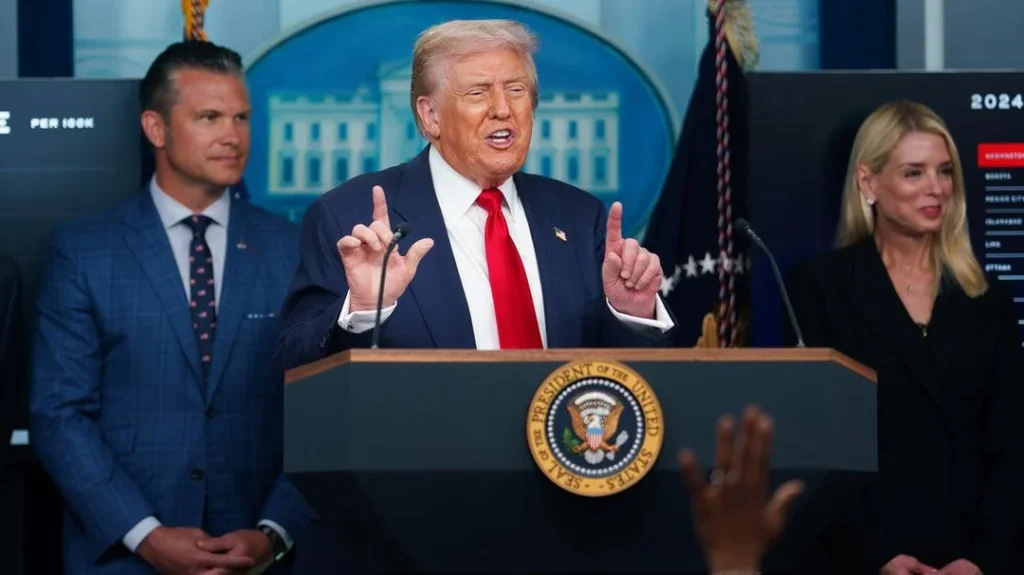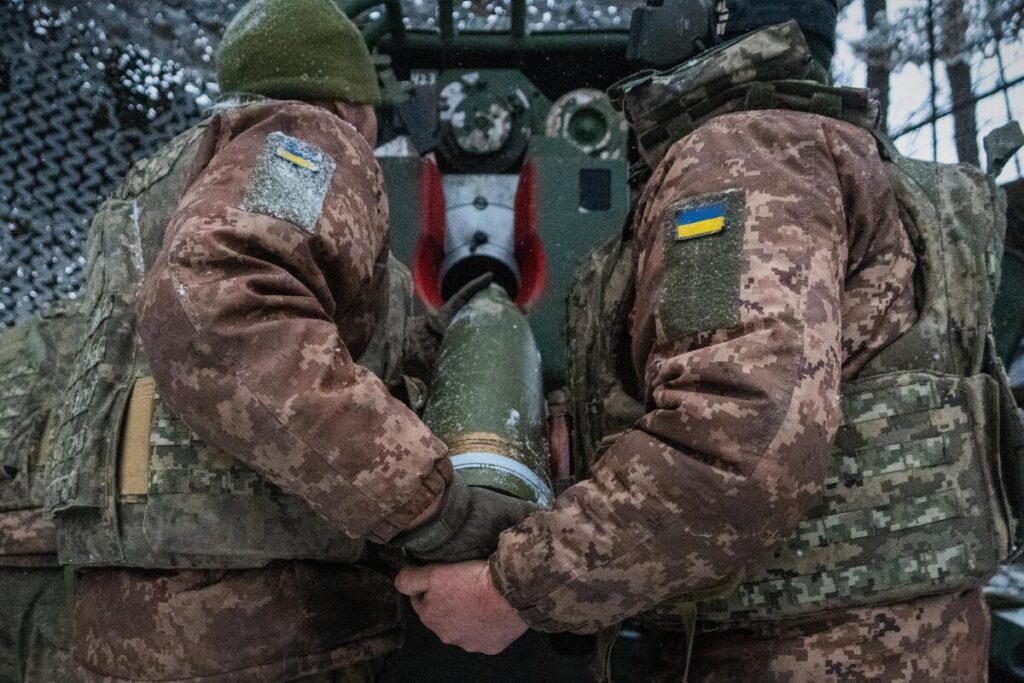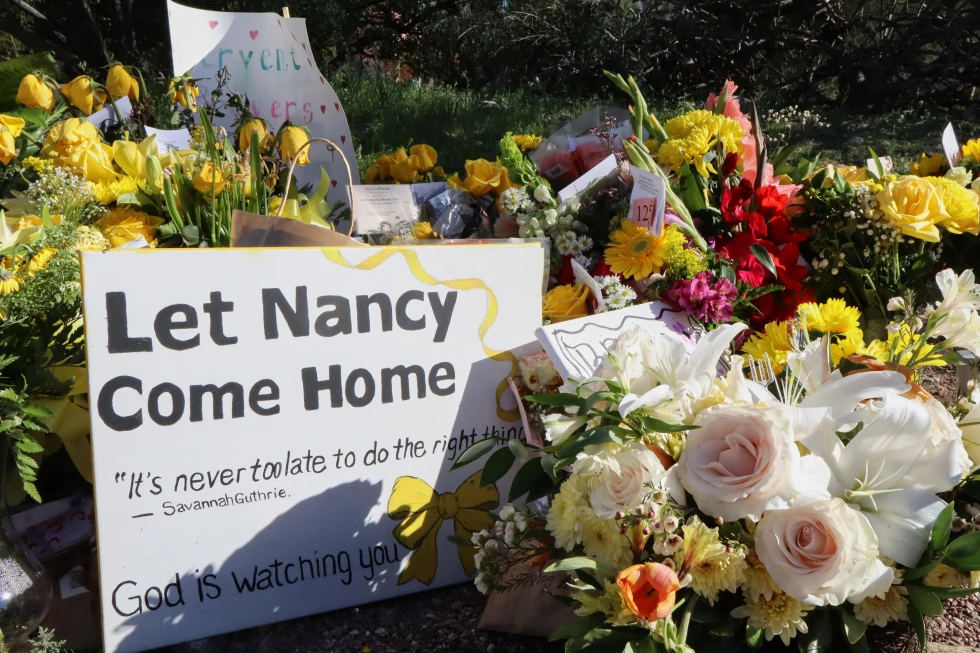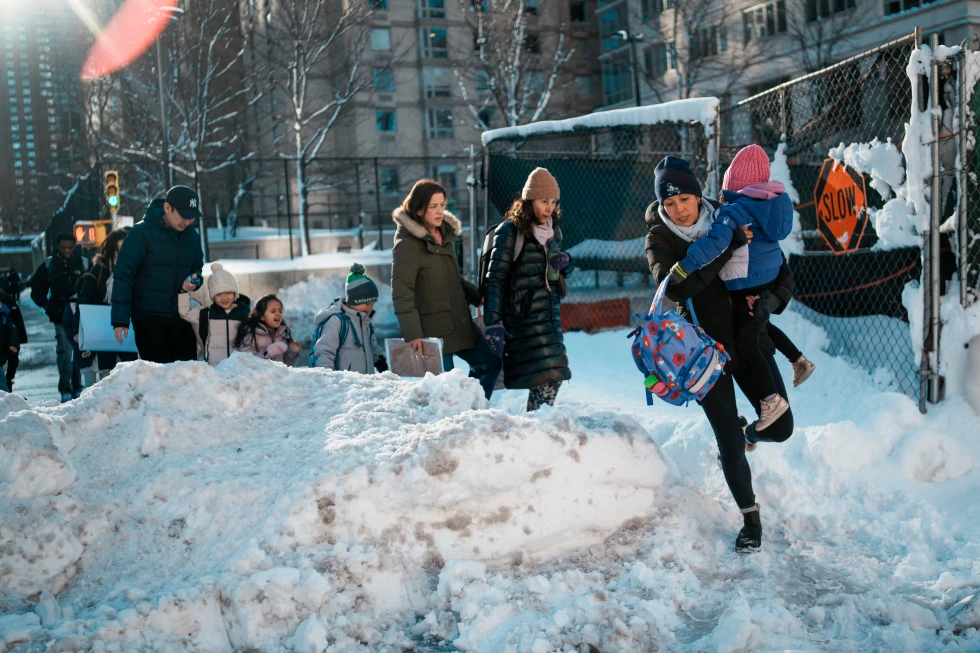Trump’s D.C. Police Takeover Is His Latest Made-Up ‘Emergency’ Power Grab

WASHINGTON — President Donald Trump declared a “crime emergency” here on Monday, took temporary control of the D.C. police department and said he’d deploy the National Guard.
It’s the first time a president has invoked the D.C. Home Rule Act of 1973 to take over the city’s police, but it’s become routine for Trump to declare dubious emergencies expanding his power.
In January, Trump declared an emergency on the southern border stemming from an alleged immigrant “invasion” as justification for deploying federal troops there despite border crossings having already declined from their highs during Joe Biden’s administration.
In March, Trump invoked the Alien Enemies Act of 1798, claiming a Venezuelan gang was “conducting irregular warfare against the territory of the United States,” so that the administration could detain and deport immigrants without due process. The administration ignored its own expert guidance that no gang was operating in the U.S. at the direction of the Venezuelan government.
And in April, Trump declared “foreign trade and economic practices have created a national emergency,” citing the International Emergency Economic Powers Act of 1977, which the White House claimed allows the president to impose tariffs worldwide even though the law doesn’t mention tariffs.
It’s not uncommon for a president to use emergency powers, including for dubious reasons — Biden used emergency powers supposedly justified by the coronavirus pandemic to try to forgive student debt, for instance — but William Banks, a law professor at Syracuse University, said Trump’s use of emergency powers across his first and second terms exceeds what other modern presidents have done.
“He’s done this with an unprecedented degree of frequency, and with extreme rationales for the steps that he has taken,” Banks told HuffPost. “It conjures comparisons to authoritarian leaders in other parts of the world and other times in our history.”
Democrats and even some libertarian-leaning Republicans have criticized Trump’s use of emergency powers.
“It’s a really a bad way to run a country, because what happens when we get, you know, Bernie Sanders or Karl Marx or whoever the Democrats put forward? What if they become president? And use emergencies to, you know, say no more gasoline or no more gasoline-powered cars,” Sen. Rand Paul (R-Ky.) said earlier this year.
Trump threatened to take over the D.C. government during the presidential campaign last year, but his interest in actually doing so seems to have escalated with the recent carjacking assault on a staffer from the so-called Department of Government Efficiency. Some political analysts and Democrats also have speculated that Trump wants to distract from his administration’s refusal to release files related to the late sexual predator and former Trump friend Jeffrey Epstein.
Speaking in the White House briefing room, Trump painted an apocalyptic portrait of the nation’s capital.
“Our capital city has been overtaken by violent gangs and bloodthirsty criminals, roving mobs of wild youth, drugged-out maniacs and homeless people, and we’re not going to let it happen anymore,” Trump said. “We’re not going to take it, just like we did on our southern border.”
While violent crime is more prevalent throughout the city than anyone would like, recent statistics suggest it’s been getting better, not worse, after spiking in 2023. Data from the Metropolitan Police Department shows violent crime declined 35% in 2024 and fell a further 26% so far this year. It’s an order of magnitude lower than during the crack epidemic of the early 1990s.
U.S. Attorney General Pam Bondi, who is prone to wild overstatement, promised that crime would stop altogether as a result of the president’s actions. “Crime in D.C. is ending and ending today,” Bondi said.
D.C. Attorney General Brian Schwalb called Trump’s takeover of city police unprecedented, unnecessary and unlawful.
“There is no crime emergency in the District of Columbia,” Schwalb wrote in a social media post. “Violent crime in DC reached historic 30-year lows last year, and is down another 26% so far this year.”
It’s hardly the first time a Republican has intervened in city affairs, which they can do as a result of the city’s constitutional status as a federal enclave. Republicans have prevented the city from regulating marijuana businesses, for instance, and earlier this year nixed a billion dollars from the city’s budget for essentially no reason. In response to the murder of a Republican Senate staffer in the early 1990s, Congress forced the city to hold a referendum on the death penalty, which was ultimately defeated.
In the event of a declared emergency, the D.C. Home Rule Act gives the president “such services of the Metropolitan Police force as the President may deem necessary and appropriate,” with the services continuing only as long as the emergency itself or for 30 days after the services are first provided.
Trump said there would be National Guard troops coming to town and that he’d already ordered hundreds of federal law enforcement officers, including FBI agents, to hit the streets.
“This is an emergency. This is a tragic emergency, and it’s embarrassing for me to be up here, you know, I’m going to see Putin. I’m going to Russia on Friday,” Trump said, referring to an upcoming meeting in Alaska with Russian President Vladimir Putin. “I don’t like being up here talking about how unsafe and how dirty and disgusting this once-beautiful capital was with graffiti all over the walls.”
Sen. Dick Durbin (D-Ill.) accused Trump of trying to “change the subject” from Epstein.
“His idea of federalizing the police force ignores the reality. They are making dramatic progress reducing violent crime in D.C.,” Durbin said.
: 199







